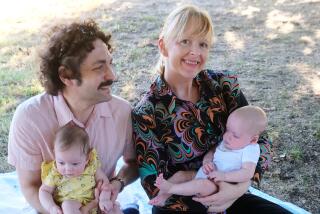Books and Translators
- Share via
Regarding Alan Cheuse’s review of Juan Benet’s “Return to Region” (“Within the Verbal Kingdom of a Spanish-Language Faulkner,” Oct. 4), outrage is not nearly strong enough a word to express my reaction to the omission of the translator’s name from the review. Does Cheuse or The Times imagine that “Return to Region” was somehow magically transformed from Spanish into English much like Athena sprang from the head of Zeus? No, it required the very hard work and creative abilities of someone who speaks both languages and understands their nuances to render “a horizon of heather and brambles, sprinkled with sage and hawthorn” from the original Spanish.
How can Cheuse possibly discuss the creation of “the adjectival waterfalls, the colons and semi-colons spread through the syntax like tiles in a long narrow pasture” or, later, the creation of “a kingdom out of a noun, verb, syntax . . .” without even mentioning the translator’s name? Does Cheuse or The Times imagine that such phrases translate directly from one language to another, that any fool could sit down with a dictionary and the rules of grammar and tackle Shakespeare? or Balzac? or Benet?
A translator is not some anonymous typist, but a creative professional whose skills are vital in bringing literature (and one hopes, understanding) from one culture to another.
LEA CHARTOCK
Culver City
The translator of “Return to Region” is Gregory Rabassa, who is credited with bringing to English-speaking readers the work of most of the major contemporary Latin - American writers , including the novels of Colombian Nobel Prize-winner Gabriel Garcia Marquez. He won a National Book Award in 1967 for his translation of Julio Cortazar’s “Hopscotch . “
More to Read
Sign up for our Book Club newsletter
Get the latest news, events and more from the Los Angeles Times Book Club, and help us get L.A. reading and talking.
You may occasionally receive promotional content from the Los Angeles Times.









